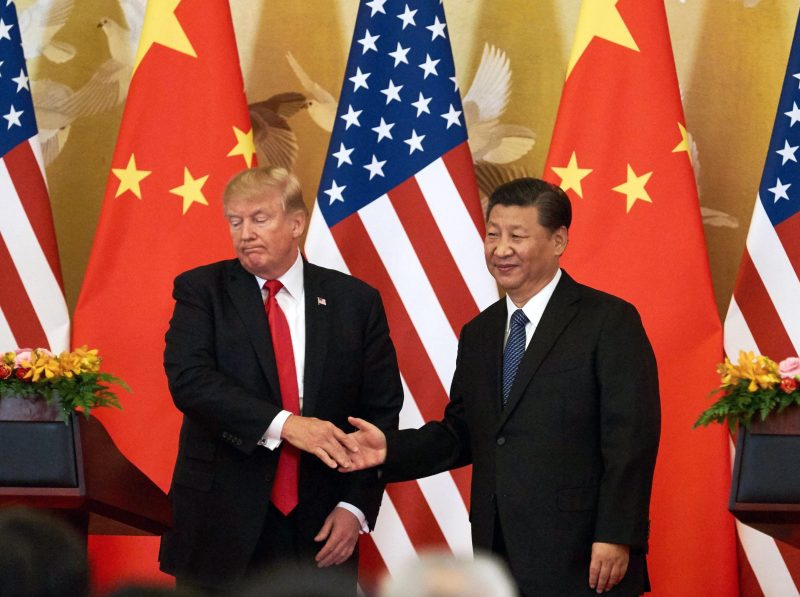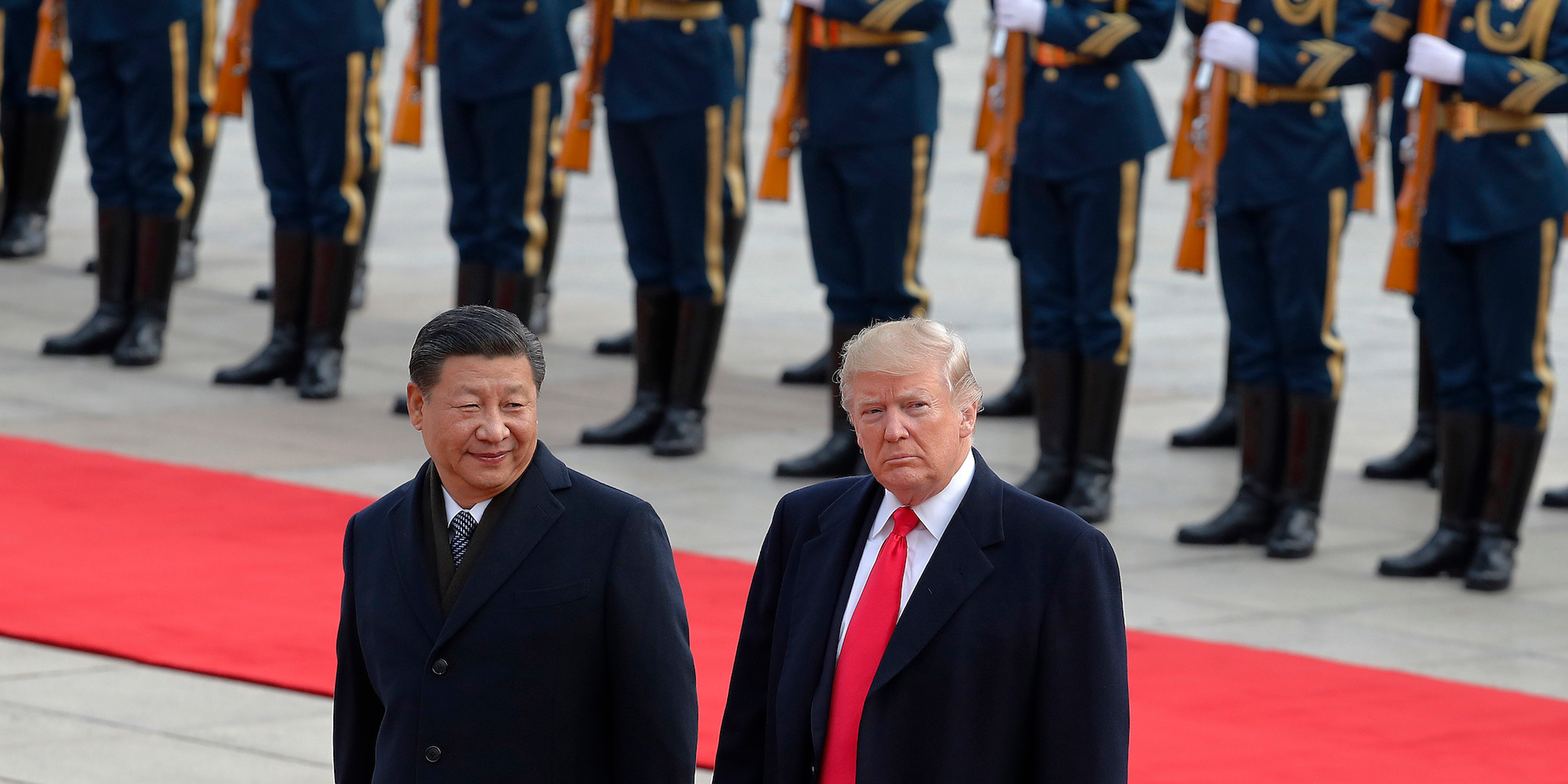- US national security officials and global health experts are increasingly concerned China could be the first country to develop a vaccine for COVID-19.
- As President Donald Trump adopts an increasingly hard-line stance toward Beijing, the US could be at a major disadvantage if China comes up with a vaccine first and decides to limit access.
- “The COVID war between the US and China is looking like a race to the moon,” one global health expert told Insider. “Being first to develop COVID treatments and vaccines has become a point of national pride.”
- Visit Business Insider’s homepage for more stories.
The race for a coronavirus vaccine is moving at unprecedented speed across the world, with China and the US vying to cross the finish line before the other as both sides play the blame game over the pandemic. A vaccine is viewed as the key to ending the pandemic, and developing one first would be a huge geopolitical victory.
There are growing concerns among current and former US national security officials and top global health experts, however, that China will develop a vaccine for the novel coronavirus first, which could put the US at a major disadvantage a time of historic tensions between Washington and Beijing.
“China has advanced a great deal in its research capabilities and has gotten a major head start on COVID vaccines and treatments,” Lawrence Gostin, the director of Georgetown University’s O’Neill Institute for National and Global Health Law, told Insider. “It is certainly possible that China could be first to show efficacy and safety. That is a problem if China decides not to equitably share the technology.”
Beijing “does have a head start” in the global effort to develop a vaccine, one national security official who spoke on condition of anonymity to talk about government affairs recently told Politico. Another official said China knows “whoever finds a workable vaccine right now basically rules the world.”
China is making "rapid progress" in developing a COVID-19 vaccine, Dr. Scott Gottlieb, the former commissioner of the Food and Drug Administration, said in a recent op-ed article for The Wall Street Journal.
"The first country to the finish line will be first to restore its economy and global influence. America risks being second," Gottlieb said.
In this context, the fight for the first 100 million doses of a future coronavirus vaccine could get "very ugly," Jeremy Konyndyk, who oversaw the Obama administration's response to the Ebola outbreak in West Africa as the director for foreign disaster assistance at the US Agency for International Development, told Insider last month.
The COVID-19 war between the US and China is looking like a 'race to the moon'
China is facing global backlash over its handling of the COVID-19 outbreak, which originated in Wuhan, China, and it's hoping that being the first to offer the world a vaccine would provide vital leverage and help ease tensions with the international community.
"The Chinese government has been putting huge resources, including military scientists, into a COVID-19 vaccine. They may well come up with the first viable vaccine," Kelley Lee, the research chair in global health governance at Simon Fraser University in British Columbia, told Insider last month.
China has also been accused by the US government of attempting to hack and steal research on the coronavirus to bolster its vaccine development.
Meanwhile, as President Donald Trump seeks to deflect from his own failures in regard to the pandemic, he's essentially granted carte blanche to his administration's coronavirus-vaccine project: "Operation Warp Speed." It has been a largely domestic effort, however, and the US on Monday skipped a summit of world leaders at which billions of dollars were pledged to vaccine research.
The nationalistic competition between Washington and Beijing to develop a vaccine first has begun to resemble the space race between the US and the Soviet Union during the Cold War.
"The COVID war between the US and China is looking like a race to the moon. Being first to develop COVID treatments and vaccines has become a point of national pride," Gostin said. "A 'my country first' attitude is highly counterproductive. We need to work cooperatively as a global and scientific community."

'When it comes to issues of public health, the most dangerous approach is a zero-sum one'
A recent Pew Research Center poll found that Americans' views of China had hit a historic low during the coronavirus pandemic. About two-thirds of respondents said they had an unfavorable view of China. That puts Trump under increased pressure from the public to take a tough stance against Beijing, but doing so could backfire on the already crippled US economy and give the Chinese government reasons to limit US access to a vaccine.
"When it comes to issues of public health, the most dangerous approach is a zero-sum one," Ned Price, a former National Security Council official under the Obama administration and ex-CIA analyst, told Insider. "What's in our national interest is in the collective interest and vice versa - and any leaders who don't recognize that will act with dangerous shortsightedness. It's precisely why the Obama administration galvanized and led a global response to Ebola in West Africa in 2014-15, which dozens of countries, including China, supported with massive resources."
"Unfortunately, there's reason to believe both Trump and Xi would take more of a zero-sum approach in the case of the current crisis," Price added.
Though Trump praised China's handling of the novel coronavirus in the early days of the outbreak, he's adopted an increasingly aggressive tone toward Beijing as the pandemic has escalated and his senior advisers push for a more hawkish China policy. The US is the center of the pandemic, with the most reported cases and fatalities, which is a source of embarrassment for Trump as he seeks reelection.
The shift in approach has included slashing funding to US nonprofit research into coronaviruses in bats because of the project's links to the Wuhan Institute of Virology, a Chinese research center where Secretary of State Mike Pompeo has alleged COVID-19 originated (despite apparent skepticism from the US intelligence community). Trump in April also announced plans to cut funding to the World Health Organization, accusing the UN's health agency of being too China-centric.
Indeed, just months after Trump signed a trade deal with China that was meant to reduce tensions during an election year, the president is now exploring options to punish Beijing over its handling of COVID-19.
But as the Trump administration takes a hard-line stance toward China, top experts on global health say that Washington and Beijing have more to gain from working together than against each other.
"If we have spent six to nine months lobbing accusations back and forth with China about who's at fault for this, and then China is the first place to get the vaccine, then we're going to be in a pretty rough spot," Konyndyk said. "We have a strong self-interest in global cooperation because we don't know who's going to reach a vaccine first ... It's kind of a roll of the dice."
Similarly, Lee said it was counterintuitive for Trump and his allies to attack China amid a pandemic given the US is heavily reliant on the country for vital medical supplies.
"This is not the time to start picking fights with the main supplier of the ingredients you will need to produce a COVID-19 vaccine. Vaccine production, like this pandemic, has shown us that we are interconnected," Lee said. "Trump's chest-thumping policies might play out well for some Americans domestically, but it makes no sense during a global pandemic."
